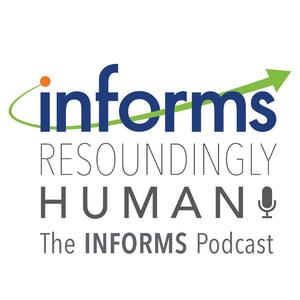Published: November 12, 2021

On this episode, I have the pleasure of speaking with an INFORMS member whose work is truly Saving Lives, Saving Money, and Solving Problems. Cynthia Rudin, professor of computer science and engineering at Duke University, has been awarded the 2021 Squirrel AI Award for Artificial Intelligence for the Benefit of Humanity, an honor considered to be the New Nobel Prize. This award recognizes positive impacts of artificial intelligence to protect, enhance, and improve human life in meaningful ways with long-lived effects. In particular, her work with Con Edison, Massachusetts General Hospital and the Cambridge Police Department played a key role in firmly cementing interpretable machine learning as a mainstream field within artificial intelligence.
I was doing all this work trying to convince people about how important interpretable models were for high-stakes decisions. To be honest, up until I got the Squirrel Award I didn’t realize that people had been listening to what I was saying, and they really were. Something changed a few years ago and they had started listening and all that work really did make a difference. Knowing that means everything to me.
Interviewed this episode:

Cynthia Rudin
Duke University
Cynthia Rudin is a professor of computer science, electrical and computer engineering, statistical science, mathematics, and biostatistics & bioinformatics at Duke University. She directs the Interpretable Machine Learning Lab, whose goal is to design predictive models with reasoning processes that are understandable to humans. Her lab applies machine learning in many areas, such as healthcare, criminal justice, and energy reliability. She holds an undergraduate degree from the University at Buffalo, and a PhD from Princeton University. She is the recipient of the 2022 Squirrel AI Award for Artificial Intelligence for the Benefit of Humanity from the Association for the Advancement of Artificial Intelligence (the “Nobel Prize of AI”). She is a fellow of the American Statistical Association and a fellow of the Institute of Mathematical Statistics. Her work has been featured in many news outlets including the NY Times, Washington Post, Wall Street Journal, and Boston Globe.
Episode Transcript
Contact us to request transcript.
Want to learn more? Check out the additional resources and links listed below for more information about what was discussed in the episode.
INFORMS Member Wins $1 Million Artificial Intelligence Prize, Equivalent to the Nobel
